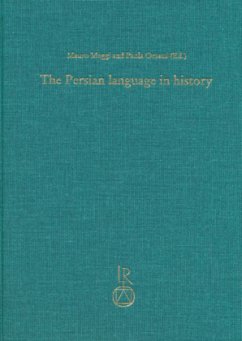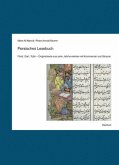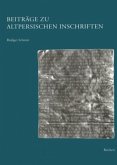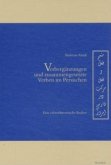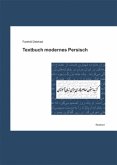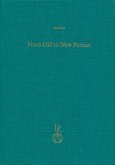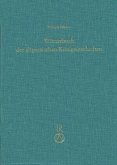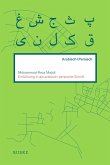Fourteen papers on a diversity of themes relating to the grammar and the vocabulary of Persian, Middle Persian texts, non-standard and early varieties of Persian, and dialects of Iran. Editions of so far unpublished texts are also included. Contributions by Gerardo Barbera, Claudia A. Ciancaglini, Desmond Durkin-Meisterernst, Ela Filippone, Daniele Guizzo, Mohammad Hasandust, Judith Josephson, Gilbert Lazard, David N. MacKenzie (_), Mauro Maggi, Paola Orsatti, Elio Provasi, Hassan Rezai Baghbidi, and Riccardo Zipoli. For students of Persian, Iranian philology, and comparative and general linguistics.
Hinweis: Dieser Artikel kann nur an eine deutsche Lieferadresse ausgeliefert werden.
Hinweis: Dieser Artikel kann nur an eine deutsche Lieferadresse ausgeliefert werden.
"Le présent volume dédié à Michele Piemontese était d'abord envisagé comme un recueil d'articles résultat d'un atelier organisé en 2006 par Paola Orsatti, mais il a été élargi de facon à y inlcure des chercheurs non italiens. Il regroupe finalement quatorze contributions variées sur la linguistique et la philologie du persan, du moyen-perse et des langues minoritaires de l'Iran."
Von: Agnes Korn
In: Abstracta Iranica, Volume 34-35-36, 2016, document 6. URL: http://abstractairanica.revues.org/42024
------------------------------------
"The volume is the result of a collaboration between two authors, Mauro Maggi and Paola Orsatti, who represent two different backgrounds, Indo-Iranian philology and Persian language and literature, respectively. It contains, as stated in its preface in a c1ear and comprehensive way, fourteen papers grouped thematically into five section. (...) In my opinion, the main qualities of this volume are the following: the high seientific level (...) the inner cohesion and, finally, the innovative approaches and new materials which make each paper a point of departure for further research. (...) The reviewer has read this volume with pleasure and benefit. The editors and contributors must be highly commended for an important volume."
Von Chiara Barbati
In: Orientalische Literaturzeitung, Band 110, Heft 2, 2015, S. 155-158.
--------------------------------------
"Wer vieles bringt, wird manchem etwas bringen, heißt es bei Goethe. Dieser Satz gilt in der wissenschaftlichen Literatur erfahrungsgemäß ganz besonders bei Sammelbänden aller Art. So ist es Rez. auch hier ergangen, der aber gerne bekennt, manchen Beitrag mit einigem Gewinn gelesen zu haben."
Rüdiger Schmitt
In: Kratylos. 57 (2012). S. 170-175.
Von: Agnes Korn
In: Abstracta Iranica, Volume 34-35-36, 2016, document 6. URL: http://abstractairanica.revues.org/42024
------------------------------------
"The volume is the result of a collaboration between two authors, Mauro Maggi and Paola Orsatti, who represent two different backgrounds, Indo-Iranian philology and Persian language and literature, respectively. It contains, as stated in its preface in a c1ear and comprehensive way, fourteen papers grouped thematically into five section. (...) In my opinion, the main qualities of this volume are the following: the high seientific level (...) the inner cohesion and, finally, the innovative approaches and new materials which make each paper a point of departure for further research. (...) The reviewer has read this volume with pleasure and benefit. The editors and contributors must be highly commended for an important volume."
Von Chiara Barbati
In: Orientalische Literaturzeitung, Band 110, Heft 2, 2015, S. 155-158.
--------------------------------------
"Wer vieles bringt, wird manchem etwas bringen, heißt es bei Goethe. Dieser Satz gilt in der wissenschaftlichen Literatur erfahrungsgemäß ganz besonders bei Sammelbänden aller Art. So ist es Rez. auch hier ergangen, der aber gerne bekennt, manchen Beitrag mit einigem Gewinn gelesen zu haben."
Rüdiger Schmitt
In: Kratylos. 57 (2012). S. 170-175.

